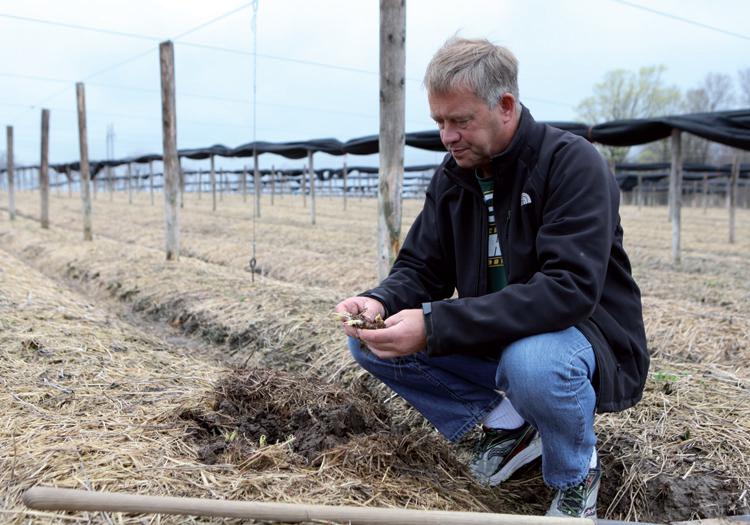Ginseng farmers in US cultivate niche in China


Cliff Cebula was living a quiet life in retirement in a white-brick house atop a hill overlooking 10 acres in Marathon County, Wisconsin, when Jiang Mingtao, a doctor-turned ginseng farmer, visited him three years ago.
Born and raised on a dairy farm in the county, Cebula never really tried his hand at growing ginseng. But when Jiang approached him asking if he was willing to plant ginseng on his land, Cebula was more than happy to say yes.
Wisconsin has a history of more than 100 years growing ginseng and is a major ginseng producer in the United States, accounting for 95 percent of the nation's output. At peak times, there are some 1,500 farms growing ginseng in the Badger State.
The boom in the ginseng-growing industry in Canada in the mid-1990s greatly pressured the viability of Wisconsin ginseng, and the number of ginseng-growing farmers in the state quickly dwindled to some 180.
The annual output now stands at around 1 million pounds, accounting for 10 percent of the world's output.
Jiang brought a gust of fresh air into the ginseng industry in the state.
Seeing the economic growth and ever-improving living standards in China, Jiang launched Marathon Ginseng International Inc in 2010, targeting the Chinese market from the outset.
By 2015, the company had exported half of its production to China.
"We entered the Chinese market in 2012, began to sell ginseng on Shanghai SMG-CJ Homeshopping platform in 2015, opened a sub-company in Beijing in May this year, and plan to open another sub-company in the Chongqing Free Trade Zone in the near future," Jiang told Xinhua.
Kirk Baumann and his younger brother Kraig run the biggest ginseng farm in Wisconsin.
"I traveled three times a year since 2002 to China, promoting Wisconsin ginseng. ... Then I got off the board and have started traveling on behalf of Baumann Ginseng now in China, promoting all of our sales directly into China, so we don't flood the market here, and we're able to keep the price," said Kirk Baumann
"We're a very small part of it (China's consumption), but the very high end and the high quality," Baumann said.































